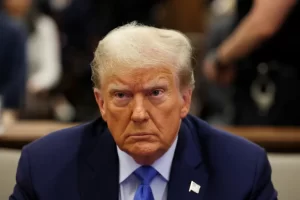
In a significant policy shift, the United States government has launched an investigation into the utilization of foreign aid allocated to Nigeria and other nations. This action follows President Donald Trump’s January 20, 2025, decision to suspend all foreign aid for 90 days, citing concerns over global destabilization and the potential misalignment of aid with American interests.
The probe was prompted by allegations from U.S. Congressman Scott Perry, who accused the United States Agency for International Development (USAID) of inadvertently financing terrorist organizations, including Boko Haram. Perry claimed that USAID disburses approximately $697 million annually to such groups, raising serious questions about the agency’s oversight and the ultimate beneficiaries of its funds.
In response to these allegations, the U.S. Mission to Nigeria issued a statement condemning the violence perpetrated by Boko Haram and other terrorist groups in the region. The mission emphasized that comprehensive monitoring and evaluation systems are in place to ensure that U.S. assistance reaches its intended recipients, thereby aiming to prevent the diversion of funds to illicit activities.
The suspension of aid and the ensuing investigation have elicited varied reactions within Nigeria. Senator Ali Ndume, representing Borno South Senatorial District, has called on the Nigerian Federal Government and the National Assembly to conduct their own investigations into the allegations. Ndume stressed the importance of addressing these claims to maintain the integrity of international aid and to ensure that funds are not being misappropriated to support terrorism.
Similarly, the Muslim Public Affairs Centre (MPAC) has urged the Nigerian National Assembly to launch a thorough investigation into the claims against USAID. MPAC reaffirmed its commitment to seeking justice for victims of Boko Haram and ensuring that those responsible for financing terrorism are held accountable.
These developments occur against the backdrop of ongoing security challenges in Nigeria. Boko Haram and its splinter factions have continued to carry out attacks in the northeastern part of the country, leading to significant loss of life and displacement of communities. The Nigerian government, with support from international partners, has been engaged in efforts to combat these insurgent groups and restore stability to the affected regions.
The U.S. government’s decision to scrutinize its foreign aid programs underscores the complexities of providing assistance in conflict zones, where the risk of funds being diverted to unintended recipients is heightened. As the investigation progresses, it is anticipated that both U.S. and Nigerian authorities will collaborate closely to address any identified issues and to strengthen mechanisms that ensure aid reaches those who need it most, without inadvertently supporting terrorist activities.
This situation highlights the delicate balance that donor countries must navigate in delivering humanitarian assistance while safeguarding against the potential for such aid to be exploited by malicious actors. The outcomes of this investigation may prompt a reevaluation of aid distribution strategies and the implementation of more stringent oversight measures to prevent future occurrences of fund misallocation.

